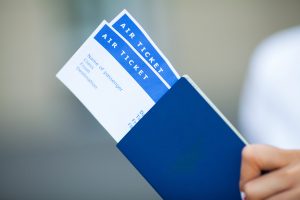There’s nothing quite like the panic that sets in when you’re sprinting through an unfamiliar airport, watching your connecting flight’s departure time tick closer while you’re still stuck in a security line or waiting at passport control. Missed flight connections happen more often than most travelers realize, and the consequences can range from a minor inconvenience to a serious disruption of your entire trip.
Understanding what happens if you miss your connecting flight—and more importantly, what you can do about it—can transform a potential travel nightmare into a manageable situation. Whether you’re dealing with missed connections flight scenarios due to airline delays, weather disruptions, or simply tight layover times, knowing your rights and options is essential for any frequent flyer.
The reality is that missing connecting flight situations aren’t always within your control. Flight delays, long immigration queues, oversized airports, and unexpected gate changes all contribute to thousands of passengers missing their onward flights every single day. What matters most is how you respond and what protections you have in place.
If all flights are on the same ticket

When you book a connecting flight as part of a single itinerary—meaning all your flights are on one ticket or reservation—you’re in the most protected position possible. Airlines have a legal and operational responsibility to get you to your final destination, even if delays cause you to miss a connection.
So what happens if you miss your connecting flight when it’s all on one ticket? The airline will typically rebook you on the next available flight at no additional cost. This is standard practice across most major carriers, and you won’t be charged change fees or fare differences in most cases. Your checked baggage will also be automatically rerouted to your final destination, so you don’t need to worry about collecting and rechecking it.
The connecting flight meaning in this context is crucial—it refers to flights that are sold and ticketed together as a continuous journey. Airlines build in what they consider reasonable connection times, and if their own delays cause you to miss that connection, they accept responsibility.
Most airlines automatically track passengers who might miss connections and proactively rebook them. You might even receive a notification on your phone before you land, informing you of your new flight. However, if this doesn’t happen automatically, head straight to the airline’s transfer desk or customer service counter as soon as you realize you’ve missed your flight.
In some cases, particularly with premium tickets or when the next available flight isn’t until the following day, airlines may offer meal vouchers, lounge access, or even hotel accommodations. The level of compensation often depends on the length of the delay, your ticket class, and the airline’s specific policies.
One important consideration: if you’re traveling on a partner airline (for example, a codeshare flight), make sure you contact the operating carrier or the airline that issued your ticket. They’re responsible for rebooking you, not necessarily the airline whose plane you were supposed to board.
If your flights are booked separately

This is where things get considerably more complicated. What happens if i miss my connecting flight when I’ve booked the flights on separate tickets? Unfortunately, the answer isn’t what most travelers want to hear: you’re generally on your own.
When flights are booked separately—even if they’re with the same airline—the carrier has no contractual obligation to accommodate you if you miss the second flight. From the airline’s perspective, these are two completely independent transactions. Missing the second flight due to delays on the first is treated the same as if you simply didn’t show up.
This means you’ll likely need to purchase a new ticket for your onward journey, which can be extremely expensive, especially if you’re booking at the last minute. Some airlines might offer you a discounted rebooking if you explain the situation, but this is entirely at their discretion and shouldn’t be counted on.
The risk of missed flight connections due flight delay is significantly higher when booking separately because airlines don’t account for your previous flight when scheduling. You might book what seems like a reasonable four-hour layover, but if your first flight is delayed by three hours, you’re cutting it dangerously close with no protection.
There are situations where booking separately makes sense—perhaps you found a significantly cheaper fare, or you’re combining a budget carrier with a traditional airline. If you choose this route, consider these precautions:
Build in substantial layover time—at least 4-6 hours for domestic connections and 6-8 hours for international ones. Yes, this means more time at the airport, but it provides a crucial buffer against delays. Make sure the airport is convenient for self-transfers, with easy connections between terminals and minimal security or customs procedures. Purchase travel insurance that specifically covers missed connections on separate tickets (we’ll discuss this more later). Keep all your confirmation emails and receipts, as you may need them for insurance claims.
The question of what if i miss my connecting flight with separate bookings also extends to your baggage. You’ll need to collect your luggage after the first flight and recheck it for the second, adding time to your connection. If you miss the second flight, you’re responsible for your bags and any storage fees if you need to leave them at the airport.
If the delay was the airline’s fault

When the airline causes you to miss connecting flight scenarios—through mechanical issues, crew scheduling problems, or operational delays—they typically bear more responsibility for making things right. What happens if you miss a connecting flight under these circumstances largely depends on the airline, your location, and local regulations.
In the European Union, passengers have strong protections under EU261 regulations. If you miss a connection due to the airline’s fault and arrive at your final destination more than three hours late, you may be entitled to compensation ranging from €250 to €600, depending on the flight distance. You’re also entitled to meals, refreshments, and accommodation if an overnight stay becomes necessary.
In the United States, airlines aren’t legally required to provide compensation for delays, but most will rebook you on the next available flight at no charge if you miss a connection due to their operational issues. Premium cabin passengers and elite frequent flyers often receive preferential treatment in these situations, including priority rebooking and better accommodation options.
What to do if you miss your connecting flight due to airline fault? Document everything. Take photos of delay notifications on departure boards, keep your boarding passes, and note the reason given for the delay. This documentation becomes crucial if you later file for compensation or need to make an insurance claim.
Be proactive rather than waiting in long customer service lines. Many airlines allow rebooking through their mobile apps, or you can call their customer service line while still on your delayed flight or waiting at the gate. Sometimes you can secure a better routing by acting quickly rather than waiting to speak with an agent at the airport.
If the airline offers you a flight the next day, don’t hesitate to ask about hotel accommodations, meal vouchers, and transportation to and from the hotel. While not always guaranteed, airlines often provide these amenities for their own operational delays, especially for passengers who would otherwise be stranded overnight.
If the delay was due to weather or other external factors

Weather delays are the wild card of air travel, and they dramatically change the equation of what happens if your flight is delayed and you miss your connecting flight. Airlines generally classify weather, air traffic control issues, security threats, and other external factors as “extraordinary circumstances”—events beyond their control.
What happens when you miss a connecting flight due to weather? The airline will typically still rebook you on the next available flight without charging change fees, especially if all your flights are on the same ticket. However, they’re not obligated to provide compensation, meals, or hotel accommodations in most cases.
This distinction frustrates many travelers. A three-hour mechanical delay might get you meal vouchers and hotel accommodation, while a three-hour weather delay often means you’re covering your own expenses. The logic is that airlines should be responsible for issues within their control but not for acts of nature.
Missing connecting flight due to delay from weather happens most frequently during winter months in northern regions and during hurricane season in coastal areas. If you’re traveling during these periods, consider booking earlier flights in the day, as delays tend to compound throughout the day. A morning cancellation might be resolved by afternoon, but an evening cancellation often means an overnight wait.
What happens if my first flight is delayed and i miss my connecting flight because of a winter storm? First, check if the airline has issued a weather waiver. During significant weather events, many airlines allow free changes or cancellations for affected routes. You might be able to reroute yourself proactively before even getting to the airport.
If you’re already at the airport and miss your connection due to weather, the rebooking process is similar to other delays, but expect longer lines and fewer available options. Weather doesn’t just delay one flight—it creates a domino effect affecting hundreds of flights and thousands of passengers all seeking rebooking simultaneously.
Your credit card travel insurance or purchased travel insurance policy may cover additional expenses you incur due to weather delays, even when the airline won’t. This might include hotel costs, meals, and even alternative transportation if you choose to rent a car or take a train to reach your destination.
If you miss your flight due to immigration or security delays

One of the most frustrating ways to experience missed connections flight is when you physically made it to the airport on time, but immigration queues, security lines, or customs procedures consumed your layover time. What happens if you miss connecting flight in this scenario depends on several factors, but it’s often treated differently than other types of delays.
Most airlines consider adequate connection time to include necessary immigration and security procedures. If you miss your flight due to these delays, the airline’s responsibility varies based on whether the connection time met minimum standards and whether the delays were unusually severe.
For international connections, minimum connection times are typically longer to account for passport control and customs. If you booked through the airline and the connection met their minimum standards, they’ll usually rebook you even if immigration delays caused you to miss the flight. However, if you booked an unusually tight connection or separate tickets, you may be on your own.
What happens if you miss your connecting flight while stuck in immigration? First, don’t panic. Airport staff see this happen daily. As soon as you clear immigration, head directly to the airline counter rather than wandering the airport looking for your gate. The flight has likely departed, and the counter is where you’ll get rebooked.
Some airports are notorious for lengthy immigration queues. If you’re connecting through these airports, consider these strategies:
Many countries offer expedited immigration programs like Global Entry, TSA PreCheck, or similar trusted traveler programs. These can reduce security and immigration time dramatically. If you’re traveling in business or first class on long-haul flights, you often receive priority immigration lanes at major airports. Professional fast track services have become increasingly popular among travelers with tight connections, offering dedicated lanes through security and immigration that can cut waiting times from hours to minutes—particularly valuable at congested international hubs. If you spot unusually long queues and realize you might miss your connection, politely ask immigration officers if they can expedite your processing given your situation—sometimes they can help.
Keep your next boarding pass readily accessible and visible if you need to ask for assistance. Having your connection information clearly displayed can help staff prioritize your processing. Remember that missing your connection due to immigration or security delays typically won’t qualify for EU261 or similar compensation schemes, as these are considered outside the airline’s control. However, the airline should still rebook you on the next available flight if all your flights are on one ticket.
What to do immediately after missing your connection
The moments immediately after realizing you’ve missed your flight are critical. What to do if you miss your connecting flight starts with staying calm and acting strategically rather than rushing to the wrong place or wasting time on unhelpful actions.
First, don’t head to the departure gate of the flight you missed. It’s already gone, and gate agents often leave immediately after the flight departs. Instead, look for the airline’s transfer desk or customer service counter. Most major airports have dedicated counters for missed connections.
While heading to that counter, simultaneously try these approaches: Open the airline’s mobile app and check if you can rebook yourself. Many airlines now offer self-service rebooking for missed connections directly through their apps. Call the airline’s customer service number. Phone agents can often rebook you faster than waiting in airport queues, and you can make the call while walking to the service counter. Check the flight information displays for the next flight to your destination and note the flight number and departure time—this helps when speaking with agents.
When you reach a service agent, be polite but direct. Explain that you missed your connection and provide your booking reference. If you have status with the airline or are traveling in a premium cabin, mention this—it often results in better rebooking options.
Ask these specific questions: What’s the next available flight to my destination? Are there alternative routes through different cities that might get me there sooner? If there’s a significant wait, am I eligible for meal vouchers, lounge access, or hotel accommodation? Can you confirm my baggage has been rerouted to the new flight?
If the offered rebooking doesn’t suit you—perhaps the next flight isn’t until the following day—don’t be afraid to ask about alternatives. Sometimes flying through a different hub or even on a partner airline can get you to your destination faster.
For checked baggage, understand that it might not make your rebooked flight if that flight departs soon. Ask the agent about baggage tracking and when you can expect your bags to arrive. Most airlines have systems to track and forward delayed baggage to your final destination.
Can travel insurance help?

Travel insurance is often mentioned as a safety net, but what happens if i miss a connecting flight and I have insurance? The answer depends entirely on your specific policy and the circumstances of your missed connection.
Comprehensive travel insurance typically covers trip delays and missed connections under certain conditions. Standard coverage usually includes reimbursement for reasonable additional expenses like meals, accommodation, and transportation if you’re delayed for a specified period (often 6-12 hours). Coverage for missed connections usually applies when the delay is due to covered reasons like carrier delays, weather, or mechanical breakdown. Some policies reimburse you for non-refundable prepaid expenses if you miss significant portions of your trip due to delays.
However, travel insurance generally won’t cover situations where the missed connection was your fault—like not allowing enough time between separately booked flights or missing a flight due to arriving late to the airport. Policies also typically exclude coverage for known events. If you book travel to an area already under a hurricane warning, for example, weather delays might not be covered.
Credit card travel insurance, which comes with many premium credit cards, often provides missed connection coverage if you purchased your tickets with that card. This coverage is typically secondary (meaning it applies after the airline’s compensation) but can be valuable for expenses the airline won’t cover.
What happens if you miss a connecting flight and need to file an insurance claim? Documentation is crucial. Keep all receipts for expenses you incur, save boarding passes and delay notifications, get written documentation from the airline explaining the reason for the delay, and photograph departure boards showing delay information.
When purchasing travel insurance, pay attention to the policy’s coverage limits for trip delays. A policy that only reimburses up to $200 for missed connections won’t be particularly helpful if you need to book a last-minute replacement flight costing $800. Consider the deductible as well—some policies have deductibles that might exceed your out-of-pocket expenses for minor delays.
Specialized “cancel for any reason” or “interrupt for any reason” insurance provides broader coverage but comes at a premium price, typically 40-60% more than standard policies. For travelers frequently making tight connections or traveling during problematic weather seasons, this additional coverage might be worthwhile.
How to avoid missing a connection in the future
Prevention is always better than dealing with the aftermath of missed flight connections. While you can’t control everything, several strategies significantly reduce your risk of missing connecting flights in the future.
Book adequate connection times. This is the single most important factor. Minimum connection times are just that—minimums. They assume everything goes perfectly, which rarely happens in air travel. Aim for at least 90 minutes for domestic connections and 2-3 hours for international connections, especially at large or unfamiliar airports.
What is a connecting flight in practical terms? It’s a race against time through an airport, and some airports make that race much harder than others. Research your connection airport before booking. Some facilities, like Atlanta, Singapore Changi, or Munich, are extremely efficient for connections. Others, like New York JFK, London Heathrow, or Los Angeles LAX, can be sprawling and time-consuming. If you must connect through a challenging airport, build in extra time.
Fly earlier in the day when possible. Morning flights are less likely to be delayed because they haven’t been affected by the day’s accumulated delays. If your first flight is at 6 AM and gets delayed, you still have all day for your connection. If your first flight is at 6 PM and gets delayed, you might be stuck overnight.
Choose non-stop flights when feasible, even if they cost slightly more. The premium you pay for a direct flight is often worth the peace of mind and time saved, not to mention eliminating the risk of missed connections entirely. When you must connect, try to keep all flights on the same airline or airline alliance. This simplifies rebooking if something goes wrong and ensures your baggage is checked through to your final destination.
Consider these additional strategies: Enroll in airline frequent flyer programs. Even without elite status, being a member often means better rebooking options when irregular operations occur. Use airline apps to track your flights and receive real-time updates about delays or gate changes. If you’re a frequent traveler making regular international connections, fast track and meet and assist services can be worth their weight in gold—they essentially eliminate immigration and security delays as a cause of missed connections, which accounts for a significant percentage of connection failures at major hubs. Pack essentials in your carry-on. If you miss a connection and your checked baggage doesn’t catch up for a day, you’ll appreciate having medications, a change of clothes, and toiletries with you. Avoid booking the last flight of the day to your destination. If you miss it, you’re definitely waiting until tomorrow. An earlier connection gives you more recovery options.
For high-stakes travel—important business meetings, weddings, cruises, or other time-sensitive events—arrive at your destination a day early if possible. Yes, it means an additional night’s accommodation, but it virtually eliminates the risk of missing your important event due to flight disruptions.
Key takeaways: Missed connection doesn’t always mean disaster

Understanding what does connecting flight mean and what happens if you miss connecting flight scenarios puts you in a much stronger position as a traveler. While missing a connection is undoubtedly frustrating, it’s rarely as catastrophic as it feels in the moment.
Remember these essential points: If all your flights are on one ticket, the airline is responsible for getting you to your destination, even if delays cause missed connections. Stay calm and be proactive—contact the airline immediately through multiple channels (app, phone, service desk) to secure the best rebooking options. Separately booked tickets carry significantly more risk, so build in substantial connection time and consider travel insurance that covers this scenario. Documentation matters. Keep receipts, boarding passes, and delay notifications, especially if you’ll be filing for compensation or insurance claims. Prevention is powerful. Strategic booking decisions—adequate connection time, morning flights, efficient airports, and same-airline tickets—dramatically reduce your risk.
For travelers who regularly face connecting flights, particularly through busy international hubs, premium airport services have emerged as a practical solution to the missed connection problem. Fast track services, for instance, provide dedicated security and immigration lanes that bypass standard queues entirely—transforming what might be a 90-minute wait into a 5-minute process. Meet and assist services take this further, offering personal handlers who escort you through the entire connection process, manage any issues that arise, and ensure you reach your gate on time. While these services represent an additional investment, frequent travelers and those with time-sensitive itineraries often find that the peace of mind and reliability justify the cost, particularly when a missed connection could mean missing a crucial business meeting or the departure of a cruise ship.
The aviation industry processes billions of passengers annually, and the system is designed to handle missed connections as a routine operational issue. Airlines have procedures, rebooking systems, and staff specifically dedicated to managing these situations. While the experience of missing connecting flight scenarios is never pleasant, understanding your rights, options, and optimal response strategies transforms it from a panic-inducing disaster into a manageable inconvenience.
Your best defense against missed connections combines smart booking practices, realistic connection times, awareness of your rights as a passenger, and remaining calm and solution-focused when things go wrong. With these tools, even when travel doesn’t go according to plan, you’ll be equipped to handle it efficiently and get to your destination with minimum additional stress.




